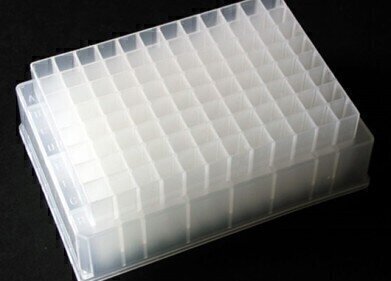-
 Gel filtration chromatography has been applied in biochemistry research to examine AgsA
Gel filtration chromatography has been applied in biochemistry research to examine AgsA
Preparative
Biochemistry team investigates heat shock protein AgsA
Jul 27 2010
A study conducted at the University of Tokushima in Japan and published in the latest issue of BMC Biochemistry explains that different substances aggregate to a variety of degrees in the presence of AgsA and at varying temperatures.
Insulin aggregates at 25 degrees C, but citrate synthase, malate dehydrogenase and denatured lysozyme all do not.
"Temperature-controlled gel filtration chromatography showed that purified AgsA could maintain large oligomeric complexes up to 50 degrees C," the scientists add.
According to the researchers, the regions of AgsA necessary for chaperone activity are located in different places; insulin chaperone activity is regulated inside the oligomeric complex, while lysozyme chaperone activity occurs at the surface.
BMC Biochemistry is open access and addresses topics including supramolecular complexes, enzymes, proteins and metabolic pathways among its broad-ranging remit.
Events
Jan 20 2025 Amsterdam, Netherlands
Feb 03 2025 Dubai, UAE
Feb 05 2025 Guangzhou, China
Mar 01 2025 Boston, MA, USA
Mar 04 2025 Berlin, Germany











